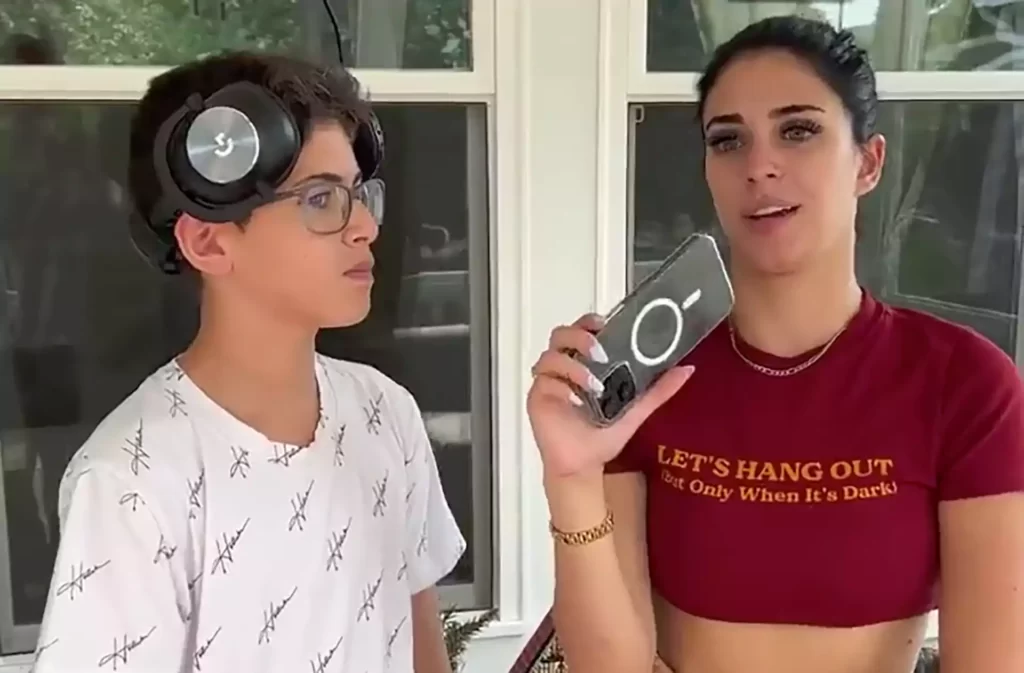Camilla Araujo Leak: What You Need To Know & Privacy Tips
Can the digital age, with all its connectivity, truly safeguard the boundaries of personal privacy? The unauthorized dissemination of content belonging to Camilla Araujo has exposed a critical fault line in our digital infrastructure, highlighting systemic vulnerabilities and raising profound ethical questions about consent, agency, and the responsibility of platforms and individuals alike.
The recent developments surrounding the unauthorized distribution of Camilla Araujo's content, specifically material originating from her OnlyFans account, have ignited a firestorm of controversy, drawing widespread attention across social media platforms, online forums, and within the entertainment industry. This incident serves as a stark reminder of the challenges inherent in maintaining digital privacy in an era where information can be disseminated rapidly and often without the consent of the individuals involved. The alleged leak has sparked a debate about the ethics of sharing leaked content without consent and is a complex issue with no easy answers.
The situation underscores the increasing prevalence of digital exploitation, gendered privacy violations, and the commodification of personal trauma, all of which have become pressing concerns in the modern digital landscape. The core issue revolves around the unauthorized sharing of private content, which raises critical questions about the ethical and legal frameworks that govern online spaces.
The leak of Camilla Araujo's content occurred through an unauthorized distribution of materials that were shared without her consent. It is believed that unauthorized users gained access to her exclusive content and shared it, likely through data breaches or the sharing of user credentials, despite the security measures implemented by platforms like OnlyFans. The impact of these leaks extends beyond the immediate violation of privacy; they can also lead to significant emotional distress, reputational damage, and even legal repercussions for those involved.
The incident involving Camilla Araujo serves as a case study in the wider issue of digital privacy and security. It's a complex issue with no easy answers. Many argue that sharing leaked content is a violation of the creator's privacy and can have a negative impact on them.
With the rise of platforms like OnlyFans, which serve as significant hubs for content creators to share exclusive materials, incidents like this underscore the challenges of maintaining privacy and control over one's digital image. The discussions that have followed the leak of Araujo's content touch on critical aspects of digital citizenship, including the responsibility of social media platforms to safeguard users' content and the cultural attitudes surrounding consent and the public's fascination with the private lives of public figures.
In an era where digital privacy is increasingly compromised, such leaks raise numerous ethical and legal questions. These questions include how much control individuals have over their data and how platforms should respond when such breaches occur. There are no easy answers, and the debate is ongoing, reflecting the complexity of balancing free speech with the need to protect individual privacy.
The aftermath of such leaks can be devastating for the individuals involved. As Camilla Araujo navigates this challenging situation, she is focused on rebuilding her life and addressing the fallout from the leak. The experience underscores the importance of robust privacy protections and the need for greater accountability from platforms.
This situation exemplifies the challenges of maintaining control over ones online image in a digital age where information and media circulate quickly and often without control. The incident also serves as a catalyst for exploring digital security and the importance of understanding the vulnerabilities that exist online.
In exploring the fallout from the leak, several key insights emerge. One of the primary concerns is the violation of personal privacy. The unauthorized distribution of intimate content represents a deep breach of trust and a significant invasion of personal boundaries. Furthermore, the incident highlights the vulnerability of content creators who rely on platforms like OnlyFans to monetize their work. The risks associated with data breaches and the potential for unauthorized access can have devastating consequences.
The discussions surrounding this event have also underscored the complex legal and ethical implications of sharing leaked content. The question of consent is central to this debate. The dissemination of content without the creator's explicit permission raises serious concerns about agency and autonomy. Additionally, the incident has brought attention to the responsibility of social media platforms in addressing and preventing the spread of leaked content. Platforms have a critical role in safeguarding user data and enforcing policies that protect against privacy violations.
Furthermore, the incident has sparked broader cultural discussions about consent, digital privacy, and the publics fascination with the private lives of public figures. The publics reactions to the leak are varied, ranging from condemnation of the perpetrators to expressions of concern for the victim. Understanding these different perspectives is essential for developing a nuanced approach to addressing the issue of digital exploitation.
To address the issues raised by the Camilla Araujo leak, several strategies and solutions are being explored. One of the most important steps is to enhance digital security practices. This involves using strong passwords, enabling two-factor authentication, and being cautious about sharing personal information online. Additionally, content creators should be educated about the risks associated with online platforms and the importance of protecting their data.
Moreover, platforms like OnlyFans need to enhance their security measures to prevent data breaches and unauthorized access. This includes implementing robust encryption, regular security audits, and prompt responses to reported vulnerabilities. Its also important for platforms to enforce clear policies that prohibit the sharing of leaked content and take swift action to remove such content when it is reported.
Another important aspect of addressing the issue is promoting media literacy and ethical behavior. Educating the public about the impact of sharing leaked content and the importance of respecting personal privacy can help create a more responsible digital environment. Additionally, fostering open discussions about consent and digital ethics can promote a better understanding of the issues at hand.
There is also a need for legal and regulatory frameworks that protect individuals from digital exploitation. These frameworks should address issues such as data breaches, unauthorized content sharing, and the responsibility of platforms to prevent and address these issues. Legal action against perpetrators and platform accountability are crucial in creating a just and secure digital world.
Understanding the underlying causes of this issue is important. It involves a complex interplay of factors, including technological vulnerabilities, social and cultural attitudes, and the economic incentives of content creation. These issues are not only challenges in the digital world, but they have far-reaching impacts in the real world. Addressing the underlying causes requires a multi-faceted approach that encompasses technological solutions, legal frameworks, and cultural shifts.
The Camilla Araujo case is only one example of the digital exploitation that occurs within the digital world. These issues go well beyond the entertainment industry. The incident highlights the importance of protecting personal data, preventing leaks, and enhancing digital security. The discussions and debates that have followed the leak are important steps toward building a more secure and ethical digital environment.
| Category | Details |
|---|---|
| Full Name | Camilla Araujo |
| Known For | Content creation on OnlyFans. |
| Incident | Unauthorized leak of private content. |
| Date of Leak | Details vary, but recent reports indicate incidents from late 2024. |
| Impact | Violation of privacy, emotional distress, reputational damage. |
| Platform Involved | OnlyFans |
| Communities | Viralvideos community on Reddit (6.4k subscribers), onlyfans_wild community on Reddit (331k subscribers) |
| Relevant Themes | Digital privacy, consent, online security, platform responsibility, media literacy. |
| Legal/Ethical Concerns | Unauthorized content sharing, data breaches, violation of user rights. |
| Strategies for Safety | Strong passwords, two-factor authentication, cautious sharing online, platform security, education about digital safety. |
| External Resources | Example Privacy & Security Reference |
The incident underscores the critical need for individuals to be proactive in safeguarding their online privacy. This includes employing strong passwords, enabling two-factor authentication, and being extremely cautious about sharing personal information online. Users should also be aware of the potential risks associated with platforms and content sharing, recognizing that any content uploaded online may be subject to unauthorized access and distribution.
The proliferation of such leaks and the discussions they generate highlight the blurred lines between public and private. The public's interest in the personal lives of public figures and content creators often fuels the circulation of leaked material. It also raises questions about how much responsibility the public has for the impact of their consumption of leaked content.
Content creators, especially those using platforms like OnlyFans, face unique challenges. They must balance the need to share content for professional purposes with the risk of data breaches and unauthorized distribution. This requires an awareness of platform security protocols, a proactive approach to protecting their data, and a willingness to seek legal counsel if their privacy is violated. Furthermore, creators can utilize tools that limit the spread of content.
The discussion around this incident also requires ethical considerations. Sharing and viewing leaked content have consequences for the individuals involved. Media literacy is key to promoting more responsible behavior online, including learning the effects of actions on others. Discussions about consent and the boundaries of privacy should become an integral part of online culture to build a digital environment that protects individuals and respects their privacy.
Furthermore, legal and regulatory frameworks must be developed to address issues such as data breaches, unauthorized content sharing, and the responsibility of platforms to prevent and address these issues. These laws must offer a clear process for holding perpetrators accountable and ensuring that platforms are responsible for protecting user data. The goal is to create a digital environment that protects individuals and respects their rights.
The debate about the ethics of sharing leaked content is a multifaceted issue, and the answers aren't easy. The discussion should emphasize a wide range of views on the subject and a detailed analysis of each viewpoint. Only by approaching this complex issue with transparency can we hope to make any substantial advancements.
To be safe in todays digital landscape, knowledge and proactiveness are vital. By staying informed and taking practical precautions, individuals can reduce their vulnerability to online threats and protect their privacy. It is important to learn the basics of digital safety, including the most recent threats and prevention strategies.
Digital security should be a part of everyday life. The following are key steps to keep in mind when protecting data and preventing leaks:
- Use strong and unique passwords for all online accounts.
- Enable two-factor authentication whenever possible.
- Be cautious about clicking links or downloading files from unknown sources.
- Regularly review privacy settings on social media and other online platforms.
- Be careful about what information you share online, including personal details, photos, and videos.
- Back up your data regularly to protect against data loss.
- Stay informed about the latest security threats and scams.
- Use reputable antivirus and anti-malware software.
- Consider using a VPN (Virtual Private Network) to protect your online activity.
- Be wary of phishing attempts and scams.
- Report any suspicious activity to the appropriate authorities or platform.
- Educate yourself about your rights and the laws that protect your privacy.
The incident involving Camilla Araujo is more than just a story. It's a case study that forces us to examine the digital age's inherent problems. It underlines the need for proactive measures to ensure a safer and more secure online world.
By learning from events like these, promoting media literacy, and demanding that platforms and legal systems safeguard individuals, we can work towards a future in which the digital realm truly respects individual privacy and security.


